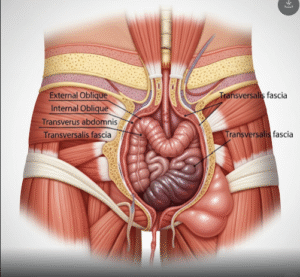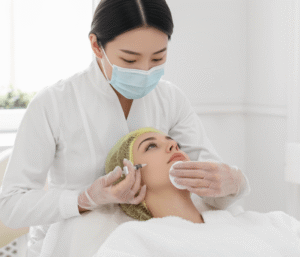Overview
Gender Affirming Surgery (GAS), also known as Gender Confirmation Surgery (GCS) or Sex Reassignment Surgery (SRS), refers to a series of medical procedures designed to help transgender and non-binary individuals align their physical bodies with their gender identity. These surgeries can involve chest/breast surgery, genital reconstruction, facial feminization or masculinization, and voice-related procedures.
South Korea has become an increasingly recognized destination for gender-affirming care due to its advanced surgical expertise, world-class hospitals, and comparatively affordable costs. Korean surgeons are skilled in plastic surgery, urology, gynecology, and reconstructive techniques, offering comprehensive treatment options for international patients seeking high-quality transition-related care.
What is Gender Affirming Surgery?
Gender Affirming Surgery encompasses a range of surgical procedures tailored to an individual’s transition goals. It may include:
- Top Surgery → Chest masculinization (mastectomy) or breast augmentation.
- Bottom Surgery → Genital reconstruction such as vaginoplasty, phalloplasty, or metoidioplasty.
- Facial Feminization Surgery (FFS) → Jaw contouring, rhinoplasty, forehead reduction, Adam’s apple reduction.
- Facial Masculinization Surgery (FMS) → Chin, jaw, and cheek augmentation.
- Voice Surgery → To feminize or masculinize vocal pitch.
The goal is to reduce gender dysphoria, improve psychological well-being, and enhance quality of life.
Benefits of Gender Affirming Surgery
Gender Affirming Surgery offers significant physical and emotional benefits:
- Improved mental health – Reduced anxiety, depression, and gender dysphoria.
- Enhanced self-confidence – Greater comfort in social, professional, and personal life.
- Better physical alignment – Body reflects gender identity more accurately.
- Higher quality of life – Many patients report improved satisfaction and happiness.
- Improved sexual function (in bottom surgeries).
- Social acceptance – Easier integration and reduced stigma in some environments.
Procedure Details
1) How should I prepare for Gender Affirming Surgery?
Preparation is highly individualized and usually involves:
- Psychological evaluation → Most hospitals require confirmation of gender dysphoria diagnosis.
- Hormone therapy → Many procedures require at least 12 months of continuous hormone therapy.
- Medical assessment → Blood tests, chest X-rays, heart and general health evaluation.
- Fertility counseling → Some patients may choose to freeze sperm or eggs before surgery.
- Smoking & alcohol cessation → Required at least 4–6 weeks before surgery.
- Weight & health management → Optimal BMI and fitness improve surgical outcomes.
- Legal documentation → Some countries require medical documentation for gender marker changes after surgery.
2) What happens during the procedure Gender Affirming Surgery?
The specific steps depend on the type of surgery:
- Top Surgery (Mastectomy or Augmentation) → Removal of breast tissue or insertion of implants.
- Vaginoplasty (Male-to-Female, MtF) → Penile and scrotal tissue is reshaped into a functional and aesthetic vagina.
- Phalloplasty / Metoidioplasty (Female-to-Male, FtM) → Creation of a penis using tissue grafts (phalloplasty) or release of hormonally enlarged clitoris (metoidioplasty).
- Facial Surgeries → Involve bone contouring, implants, or soft-tissue reshaping.
- Voice Surgery → Adjustments to vocal cords to raise or lower pitch.
Korean hospitals usually perform these under general anesthesia, using minimally invasive and microsurgical techniques to reduce scarring and improve outcomes.
3) What happens after a Gender Affirming Surgery?
Post-operative care is crucial for healing:
- Hospital stay → Varies from 2 days (for top surgery) to 7–14 days (for bottom surgery).
- Pain management → Medication for discomfort and swelling.
- Wound care → Regular cleaning, dressing changes, and follow-ups.
- Catheter use (in bottom surgeries) → May be required for 1–2 weeks.
- Diet → Light diet until recovery stabilizes.
- Physical activity → Avoid heavy lifting or exercise for 4–6 weeks.
- Follow-up visits → Regular consultations with surgeons, psychologists, and endocrinologists.
Risks / Benefits
Risks
Like all major surgeries, gender affirming procedures carry risks:
- Bleeding, infection, or wound complications
- Scarring or aesthetic dissatisfaction
- Loss of sensation (temporary or permanent)
- Urinary difficulties after bottom surgery
- Implant-related complications in breast augmentation
- Need for revision surgery
- Emotional adjustment challenges
Benefits
- Reduced gender dysphoria and mental distress.
- Long-lasting improvement in self-image and social confidence.
- High satisfaction rates among patients worldwide.
- Better sexual health and body functionality.
- Comprehensive support in Korea including counseling, endocrinology, and follow-up care.
Recovery and Outlook
- Initial recovery → 2–4 weeks for most procedures, longer (2–3 months) for bottom surgeries.
- Long-term results → Stable and satisfactory outcomes after 6–12 months.
- Mental health improvement → Studies show reduced depression and increased life satisfaction.
- Physical activity → Patients gradually return to normal routines after healing.
- Outlook → With modern surgical techniques in Korea, success and satisfaction rates are high, especially when combined with proper psychological support and hormone therapy.
When To Call the Doctor
Patients should immediately seek medical care if they experience:
- ⚠️ Severe pain or swelling not improving with medication
- ⚠️ High fever or pus discharge from surgical site
- ⚠️ Excessive bleeding or hematoma
- ⚠️ Difficulty urinating after bottom surgery
- ⚠️ Breathing difficulties after anesthesia
- ⚠️ Signs of depression or suicidal thoughts
Best Korea Option / Process
South Korea offers comprehensive gender-affirming care in specialized hospitals and clinics.
Why choose Korea for Gender Affirming Surgery?
- World-renowned plastic surgeons with expertise in facial and body reconstruction.
- Advanced techniques → Microsurgery, robotic-assisted methods, and minimally invasive procedures.
- Integrated care teams → Plastic surgeons, urologists, gynecologists, psychiatrists, and endocrinologists.
- Affordable compared to Western countries (costs are 30–50% lower).
- Safe medical system with English-speaking staff for international patients.
Leading Hospitals in Korea for Gender Affirming Surgery:
- Yonsei Severance Hospital (Seoul) – Offers comprehensive transgender health services.
- Asan Medical Center – Multidisciplinary approach with reconstructive surgery expertise.
- Seoul National University Hospital – Advanced microsurgery for genital reconstruction.
- Private Clinics in Gangnam – Specialize in facial feminization/masculinization surgeries.
👉 For transgender individuals seeking safe, effective, and life-changing surgery, Korea provides world-class expertise, compassionate care, and a supportive medical environment.













